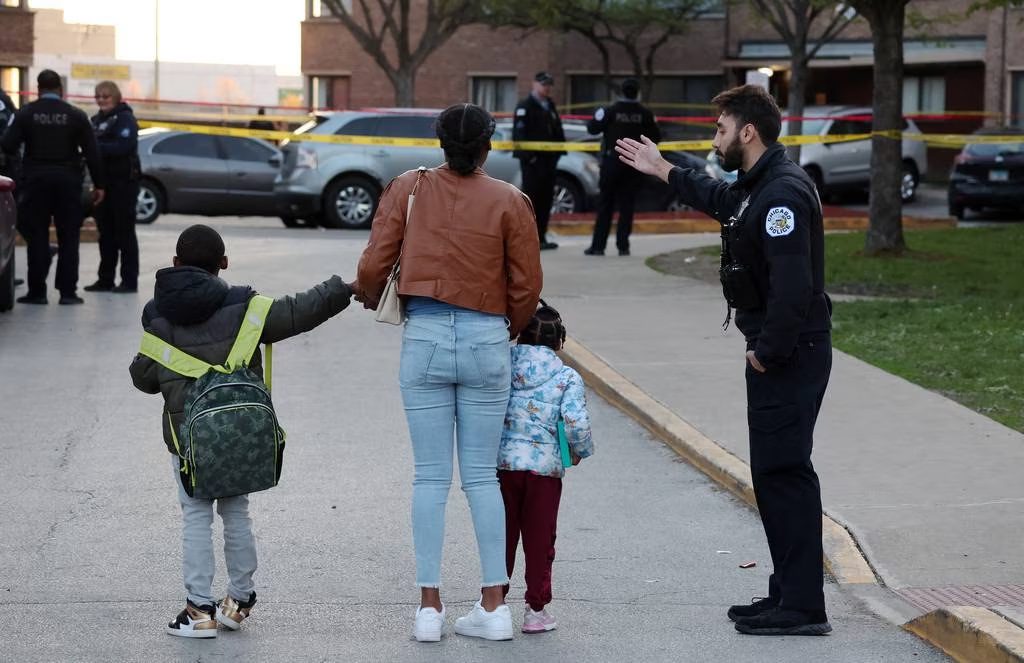Violence cannot be stopped until we address root causes, and I rank untreated trauma very high on the list. Hurt people hurt people in a never-ending cycle that can be broken only with comprehensive mental health treatment and an open dialogue that respects those who suffer the violent loss of a loved one.
The complex trauma experienced by parents, sons and daughters, siblings and other relatives of homicide victims can cause irreparable mental, physical and emotional damage. Science shows us that trauma changes a person’s brain — by altering how they process information, for example — as well as their perspective on life, and it has ripple effects on their overall health, most often resulting in post-traumatic stress disorder, better known as PTSD.
The organization that I lead, Chicago Survivors, focuses on treating individuals who have suffered from senseless acts of violence by providing free therapy and crime victim services and giving a voice to the unheard. We navigate through the complexities of supporting adults and children in a time when they don’t always see justice and are not able to reconcile their losses.
Through various forms of therapy, we are able to guide survivors and give them an outlet to find peace. Assessments of our participants show an 80% reduction in PTSD symptoms.
Studies show us that there is a 30- to 45-day window best suited to treat trauma, but for us, approaching the family in the immediate hours after the incident is key. We respond to nearly every homicide in Chicago, day or night. Connecting in the critical hours after a homicide allows us to show that we are here for survivors and that someone in the city cares about them. We know not everyone will want to speak with us immediately, but we assure them that we are here to talk when they are ready.
[ Opinion series: Turning the tide on Chicago’s gun violence ]
This work is a type of violence interruption. We can effectively de-escalate a volatile situation and can prevent more violence by consoling a family member who is grief-stricken and unsure how to react and allowing them to let out all of their emotions. Our crisis responders and family support workers evaluate and assess retaliation language and work with survivors to redirect their pain. We are able to help survivors realize that people depend on and look to them for stability. Our role at that time is to give them someone to lean on.
The truth is it’s what we do every day throughout this great city in hospitals, morgues, clinics and even schools.
A child who experiences gun violence is more prone to PTSD since their brains are still developing. We have long provided counseling, grief groups and camps for youths. Last year, we launched a pilot program in three schools in Chicago Public Schools to work with students who had lost someone to gun violence.
By offering counseling services in their safe space — school — we can help both students and teachers learn to cope with trauma. Sometimes we place students into grief groups that allow them to sit and speak with their peers who have similar lived experience but may be at a different stage in their grief. Some students have had therapy, some haven’t, and some have found ways to be resilient following the situation, but it opens the door for all of them to share their stories with someone who can relate to what they’re feeling.
Our work with students using narrative storytelling, one-on-one counseling and other evidence-based methods has been uplifting. Children who have PTSD related to gun violence are remarkably resilient. They want to move past their grief by talking through it and finding a way to express their emotions. Retaliation is a sign of grief. By walking our youngest survivors through their complex emotions, we give them an outlet and close the door on perpetrating violence in a misguided attempt to seek the justice they feel they haven’t received.
Our form of intervening and disrupting gun violence in Chicago is a therapeutic practice that produces results. We’ve seen the benefits and we continue to grow. This year, we’ll be expanding our partnership with CPS to include 16 schools and we have a waiting list of more than 50.
These methods can and have made a difference. I’ve dedicated the last 15 years to helping fight the senseless violence and bringing peace to those affected because, like many in Chicago, I am a survivor. Chicago Survivors was started by survivors, for survivors, and we know it works. The research proves it, we’ve lived it, we’ve seen it and others have begun to recognize the importance of therapy as a way to end the violence plaguing our most vulnerable communities and our city as a whole.
JaShawn Hill is a licensed clinical social worker and executive director of Chicago Survivors, a not-for-profit organization dedicated to providing crime victim services to families of homicide victims.
